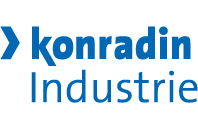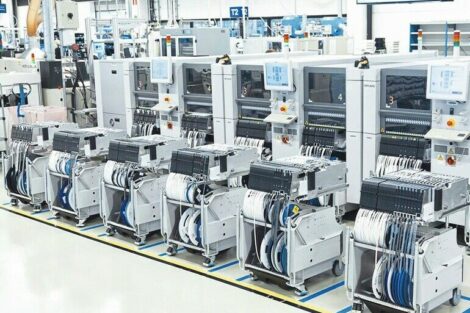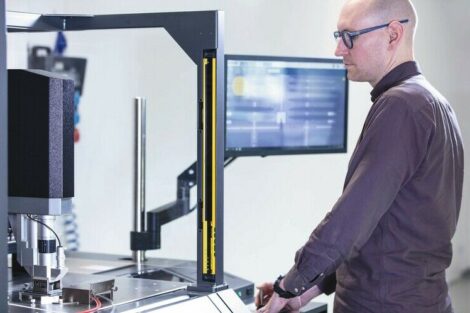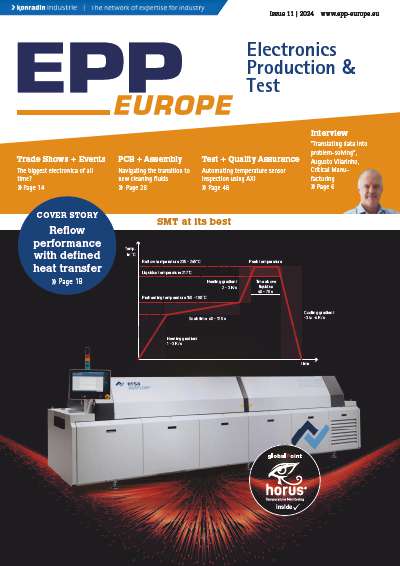Medical technology and device companies have unique requirements when selecting a manufacturing partner. ISO-13485 medical device certification is a must, but it’s only a baseline. It takes years for a contract manufacturer to develop accurate and precise processes, establish a network of suppliers for high-quality parts, and have the knowledge, resources, and experience to ensure that products meet individual country and worldwide specifications and regulations. Considerations for selection include location, manufacturing capabilities, the breadth of services, quality, and a trustworthy team.
Rigorous standards
Medical manufacturing is very well-established and there are many manufacturing firms — all with the same certificates and structure. What is important is not the complexity of the product being produced, because the same regulatory system is used for all medical products. It’s finding the balance between meeting regulatory system demands and achieving the best efficiency, productivity, and cost-reduction model.
About Scanfil
Scanfil has been providing manufacturing and system integration services for more than 40 years for products that include communications network devices, automation system modules, power and frequency converters, lift control systems, analyzers, purifiers, slot and vending machines, devices for meteorology, and more. For the past 25 years, the company has served companies developing products for medtech, life science, and environmental measurement and analysis. Headquartered in Finland, it has 3,200 employees with nine factories worldwide in North America, Europe, and Asia. These factories offer services including engineering, development, manufacturing of PCBAs and various mechanics, medical devices and final devices, distribution, and reverse logistics services. Certifications include ISO-9001, ISO-14001, ISO-13485, IATF-16949, ISO-45001, CTPAT, UL-508A, daily quality management, Kaizen and Lean Six Sigma. Scanfil also adheres to many country regulations such as MDR, IVDR (EU), QSR (USA), MSA (Japan), and South Korea etc.
“Behind everything is the standardization of processes and that’s what makes the difference,” says Steve Creutz, managing director for Scanfil Åtvidaberg, Sweden. “Built into every product, no matter what it is, is a well-developed standardization of manufacturing processes that are adhered to by every employee in every facility. These processes have been tested and proven over the years, aligned with stringent regulatory requirements, and give consistent results 100 percent of the time. They are known and implemented by every employee, which enables employees to be nimble and quickly adapt to different products, circumstances, assembly challenges, testing, and customer specifications, and they have become part of the Electronic Scanfil culture.”
“Scanfil has perfected the ability to integrate its manufacturing knowledge and its way of producing products with the specialized and demanding highly-regulated and defined requirements for medical products and technology,” says Mats Lindblad, director for global quality for the company. “One auditor highlighted [our] way of utilizing highly modern production methods while complying with high regulatory demands without compromising either.”
Tailored life-
cycle services
Another differentiator is the à la carte menu of complete life-cycle services provided to each customer, no matter the size of the company, where the company’s located, where they are conducting business, or their stage in the product life cycle. Services range from product design, new product introduction, industrialization, supply chain management, material handling, electronics and mechanical capabilities, manufacturing, quality control, final integration, testing, and distribution all the way to the end market. Scanfil NPI/validation of production processes can be seamlessly integrated with the customer’s design transfer and authority approval activities. Its design-driven manufacturing approach, vertically integrated production, and comprehensive supply chain are advantageous from R&D, to manufacturing, to logistics.
Smart tools and systems, such as material handling automation, autonomous intelligent vehicles (AVIs), cobots (collaborative robots) that assist human operators or other machines in more static and repetitive tasks, big data analytics, manufacturing execution software (MES) and manufacturing internet of things (IOT), and robotic process automation (RPA) that automates and digitizes manual and routine work, are employed. Electronic Device History Record (eDHR) functionalities fulfill the highest requirements of medical device manufacturing by collecting real-time data from production. The system ensures that the right material is used and that all operations are carried out with an approved result.
SMART
“Our answer to the changing world is Scanfil SMART,” says Creutz. “We consistently seek new ways to develop our operations and efficiency. SMART enables us to meet future demands and beyond.” SMART ensures a connected, transparent, proactive, and optimized end-to-end supply chain operation. These tasks are performed in conjunction with state-of-the-art equipment and technology performance management and support, which enables speed, flexibility, reliability, on-time delivery, and cost efficiency. A company’s needs often depend on its size. Smaller companies or startups desire competence and support in approval processes and a solid, experienced, and established partner for help with manufacturing processes. For them, it’s important to build an interface and solid relationship and have a good thread out to the market. Mid-size and large companies seek a contract manufacturer as a production resource to balance their own production with that of the contract manufacturer. For these companies, the types of production facilities, standardization, and need for competence are more important than specific product introduction and regulation knowledge.
Collaboration with Jolife
Scanfil’s journey with Jolife, a part of Stryker, which started more than 20 years ago as the start-up company Jolife AB, located in Lund, Sweden, is a good example of a manufacturing relationship. The company developed and launched the LUCAS chest compression system, which redefined emergency care and helped save lives. As a startup company embarking on new product introduction, Jolife needed a manufacturing partner to help meet the vast array of global rules and regulatory standards, such as those for Japan, Brazil, Korea, and the U.S. Food and Drug Administration, and a way to competitively enter the medtech market. Scanfil handled system integration, supply chain management, value engineering, and distribution. As a long-term medtech manufacturing partner, it had processes for supply chain management in place. Jolife could take advantage of its extensive procurement portfolio of high-quality parts specified for medical devices and its established suppliers without going through the extensive surveillance and audits. The company also built an interface and responsibility matrix so there was constant communication, visibility, transparency, flexibility, reliability, and accountability throughout the process.
The partnership has continued. The LUCAS system is now in its third generation. Sara Lindroth, managing director of Jolife AB, a part of Stryker, says, “During our partnership over the last two decades, we have successfully passed many audits by regulatory authorities, have seen steady growth of sold units on a global market, and together with Scanfil, we have been able to continuously lower the cost of the products. These factors create a win-win situation.”
Global support
The company’s global medtech capabilities enable quick and stable transfer of products from the customer while local operations work in parallel to design product upgrades, deliver sustainability engineering for obsolete components, and often improve the supply chain with lower cost or more optimum lead-time suppliers. “Scanfil’s factory near Atlanta, Georgia, which is also certified to ISO-13485, has onboarded several customers and products in the medtech space, such as centrifuges and air purifiers, which resulted in removing the burden from our customers’ manufacturing capacity,” explains Jaron Cherry, director of sales for Scanfil North America. “The factory has a staff of over 300 operating in a 126,000 square foot facility to provide engineering, assembly, distribution and reverse logistics services on behalf of our clients. The company has sustained tremendous year-over-year growth by taking on new customers and new products from existing customers.”
The company is continually incorporating sustainability procedures and practices into its operations. The company has been steadily executing a five-year plan for reduction in its carbon footprint and fossil-based energy consumption while implementing better waste handling and waste reduction, increasing recycling percentages, using raw materials more efficiently, acquiring more environmentally friendly equipment, and more.
Selecting the right medtech manufacturing partner can make a tremendous difference in a company’s success. Profound Medical Corporation, Ontario, Canada, develops and commercializes therapeutic platforms that combine real-time magnetic resonance imaging and non-invasive ultrasound ablation equipment for treating cancer. They selected Scanfil as their long-term manufacturing partner. CEO of Profound Medical Arun Menawat explains why the company chose as they did. “Securing a reliable and experienced manufacturer is crucial as we expect interest in, and adoption of, our technology to grow,” he says. “We are looking forward to working with Scanfil as we continue to pursue growth opportunities for our products, which we believe could fulfill unmet needs of doctors and patients alike.”















